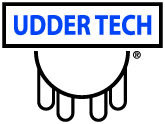Section 1031 exchanges can be beneficial to farmers and ranchers if done correctly. Assume that, for instance, you have a farm (Property A) that cost you $25,000 and is now worth $100,000. Your tax basis on that Property A is the $25,000 original cost.
If you sell it for $100,000, you will have a taxable profit of $75,000 ($100,000 sales price minus $25,000 cost).
If you want to now buy another farm (Property B) worth at least $100,000 (the same current value of Property A) or more, you can sell Property A for $100,000 and buy Property B for at least $100,000 – and not immediately pay any income taxes now on the profit of $75,000 from selling Property A.
From an income tax standpoint, you just substitute your cost in owning Property A for the cost of owning Property B. When you sell Property B for, let us say, $150,000, your taxable profit will be the sales price of Property B ($150,000) minus your basis in Property A ($25,000) for a taxable gain of $125,000.
Without a 1031 exchange, you would now pay income taxes on that $125,000 gain when you sell Property B.
Section 1031 allows you to add the profit from the sale of Property A to the future sale of Property B, and pay that tax when you sell Property B. If you meet the requirements of the Internal Revenue Code, this can help you improve your business assets and postpone the income tax to a future date.
Same kind of property
You must be selling and buying the same kind of property – or to use the tax term, “like kind” of property. You cannot sell a farm and buy an expensive boat and qualify for the 1031 exchange because a farm is not a “like kind” of property as a boat.
You generally cannot sell a horse and buy a cow and qualify. You could sell a farm and buy another farm for equal or more value. And you could sell a cow and buy another cow of equal or more value because these are considered to be “like kind” of properties by the Internal Revenue Service. You cannot sell a tractor and buy a hotel because they are not “like kind” in the eyes of the IRS.
Selling a tractor to buy a different, more valuable tractor is OK, and selling a hotel to buy a more expensive hotel will work.
Travis Bard
Travis Bard retired from full-time professional team roping. He is a real estate broker in Prescott, Arizona, specializing in agricultural and development properties. Bard has done many Section 1031 exchanges. “They can work well,” Bard says.
“We use them often to help people retire from agriculture to trade their ranch or farm for like kind of income- producing real estate. But you must follow the rules.”
Rules to follow
Section 1031 rules are exact and must be adhered to, or you do not qualify to postpone the income tax. You need a tax-knowledgeable lawyer and a CPA to get this done safely. Exchanging the wrong kind of properties can trigger an audit from the IRS.
You have to go through a third party, called by the IRS a “qualified intermediary.” When you sell Property A, you cannot get any of the money yourself. It must go to the qualified intermediary. That qualified intermediary will hold the money from the sale.
Within 45 days of your sale closing, you must identify the new property you are going to buy (Property B). Again, Property B must be worth as much or more than the sales price of Property A.
Then, within 180 days of the sale of Property A, you must buy the new Property B. These days are critical. Every day (including weekends and holidays) is counted. The qualified intermediary holds the money from the sale of Property A and pays for Property B.
Later, the qualified intermediary deeds Property B to you. If you do get any cash (called “boot” by the IRS), you must pay income taxes on it. If the paperwork and date deadlines are not correct, you wind up having to pay income taxes now on your profit anyway. So be sure you are working with expert people who know what they are doing.
Special IRS tax forms and notices must be used. There are other rules as well, but this article hopefully gives you some ideas to consider. Your lawyer and accountant must completely understand Section 1031 exchanges. The qualified intermediary must be approved by the IRS – and be honest because they are going to handle your money.
“Problems can come when people do not fully understand what a Section 1031 exchange is or how it works. The parties on both sides of a 1031 transaction must fully comprehend how it works and what will happen and when,” Bard stresses. “It does not avoid paying taxes. It only postpones the payment of any taxes due.”
Remember, this section of the Internal Revenue Code can also apply to transactions involving livestock, equipment, etc., besides real estate. But it is complicated, and you truly cannot do it by yourself.
The proper use of Section 1031 can help you improve your herd, equipment, farm or ranch, etc., by postponing taxes on profits from the sale/exchange of like kinds of property and conserving your cash flow. But, as always with the IRS, there are rules to be followed and consequences if done wrong.
Get with your accountant and lawyer who know what they are doing on this and follow their advice. This is one thing you cannot do alone! ![]()
Les Nunn is a retired professor and graduate of the King Ranch Institute of Ranch Management, Texas A&M University. He ranches in Oklahoma and does agricultural business plan consulting.
Les Nunn is a freelance author from Pauls Valley, Oklahoma. Email Les Nunn.







